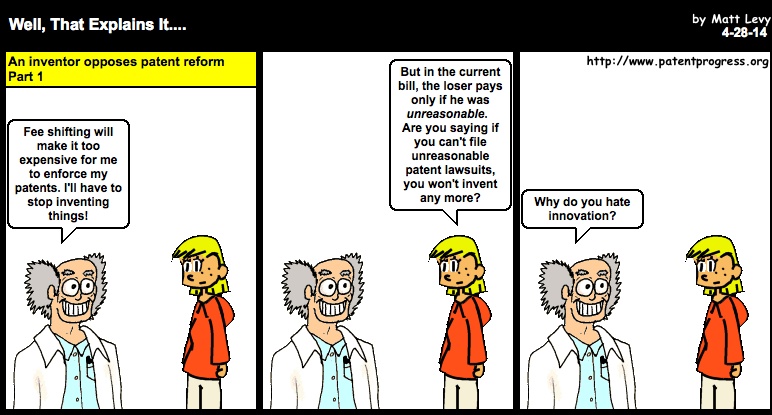Previous Comic | Next Comic
Click the image to see a larger version.
This comic was created using StripCreator.
Previous Comic | Next Comic
Update (4/29/14): In the Octane Fitness decision issued today, Justice Sotomayor made the same basic point:
We crafted the Noerr-Pennington doctrine—and carved out only a narrow exception for“sham” litigation—to avoid chilling the exercise of the First Amendment right to petition the government for the redress of grievances. See PRE, 508 U. S., at 56 (“Those who petition government for redress are generally immune from antitrust liability”). But to the extent that patent suits are similarly protected as acts of petitioning, it is not clear why the shifting of fees in an “exceptional” case would diminish that right. The threat of antitrust liability (and the attendant treble damages, 15 U. S. C. §15) far more significantly chills the exercise of the right to petition than does the mere shifting of attorney’s fees. In the Noerr–Pennington context, defendants seek immunity from a judicial declaration that their filing of a lawsuit was actually unlawful; here, they seek immunity from a far less onerous declaration that they should bear the costs of that lawsuit in exceptional cases.

